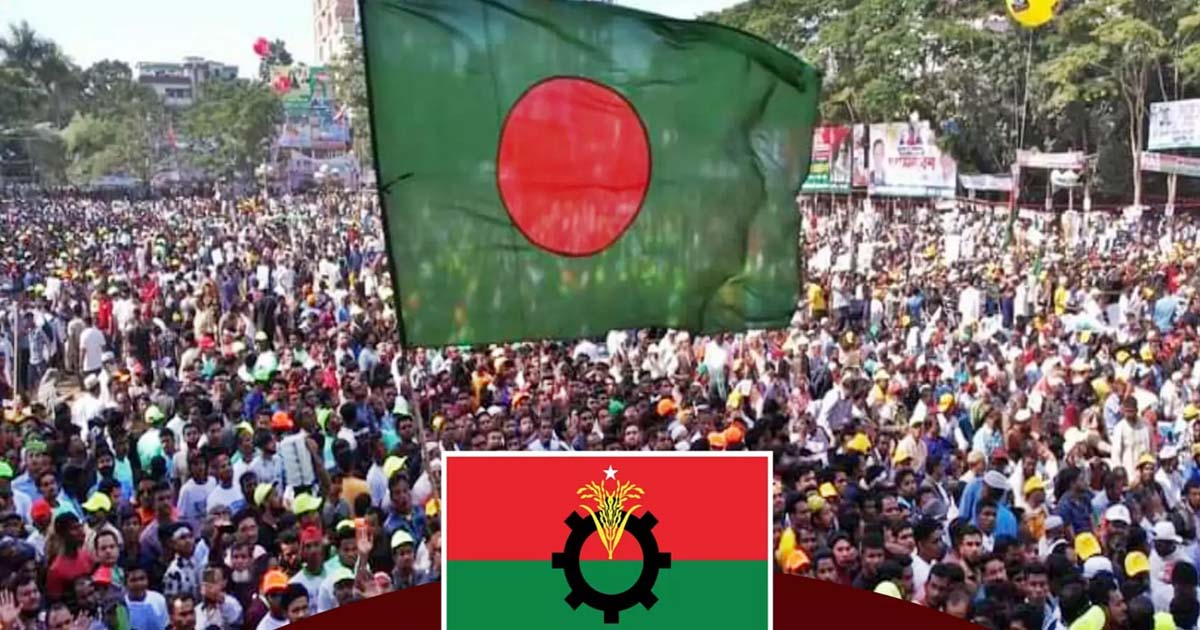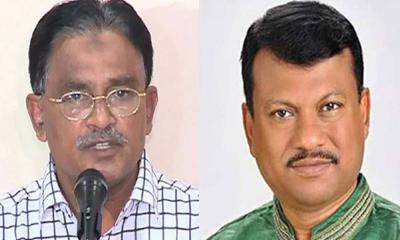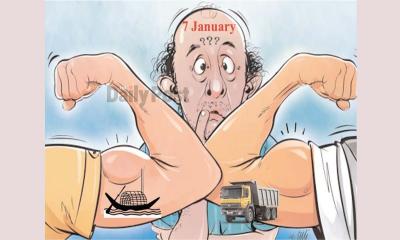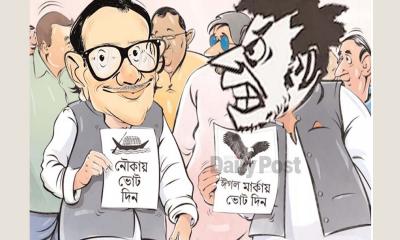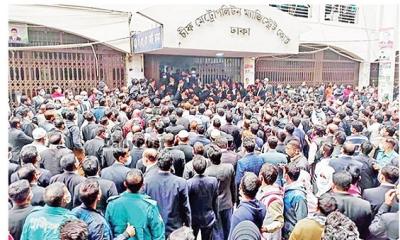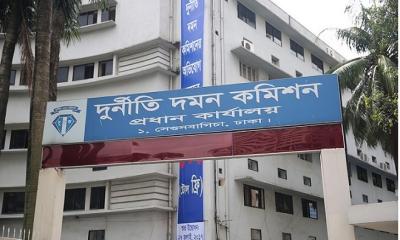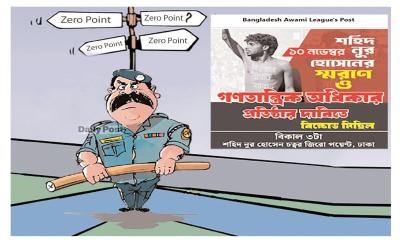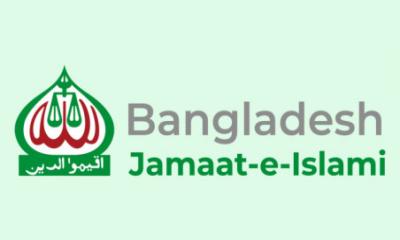The BNP started 2023 much as they had ended 2022, active on the streets and on the march with regular programmes throughout the country, their supporters infused with high hopes of ousting the incumbent Awami League-led government and returning to power after 17 years through a free and fair election, that they maintained could only be held under a neutral administration.
Everything the BNP did all year was aimed at securing this outcome ahead of the country’s 12th parliamentary election, which they hoped to participate in - but not if it was to be held under a government led by Sheikh Hasina. The posturing by some important foreign governments, most notably in Washington, served to put even more wind on the party’s sails towards achieving their objective.
But ultimately the year ended in great dismay for the BNP, with a renewed crackdown on their activities in the last two months leading to almost their entire top leadership either ending up in jail or on the run.
As the party is boycotting the 12 parliamentary polls slated for January 7 following its failure to force the government to accept its demand for a polls-time-neutral administration, political analysts believe it will be very challenging for BNP to stage a comeback in politics and revitalise its rank and file in the coming years.
They also fear that the party is likely to face a serious leadership crisis in the days to come, as around 1500 leaders and activists of the BNP and its associate bodies have already been convicted in different political cases from years ago getting raked up again, while around 26,000 others have landed in jail.
Political analysts think BNP should come up with well-thought-out plans and strategies to continue their anti-government movement peacefully by drumming up more public support alongside overhauling the party.
Despite topsy-turvy year that ends meekly, BNP’s resolve to topple govt unbroken
Analysing BNP’s politics in 2023, Professor Ali Riaz, a distinguished professor of political science at Illinois State University (USA), said although the BNP’s non-violent movement did not succeed in achieving its goal to force the incumbent to resign and having a neutral interim government to conduct the election, it has succeeded in popularising the demand, making it a demand of almost all opposition parties.
“The large public participation in its rallies showed that its support has increased. Despite various efforts from the government to split the BNP, keeping the party united is a big success of the leadership,” he observed.
Dr Riaz said the actions of the government, especially after October 28 (see below) reflect that they in fact wanted to hold an election keeping the BNP out of it.
“Therefore, whether BNP wanted to boycott or not seems irrelevant,” he said. “We should underscore that the BNP alone is not boycotting the election. The absence of the BNP has exposed that the ‘election’ is a stage-managed show.”
He also said the BNP is facing a serious challenge due to thousands of activists being jailed and more than 1500 leaders and activists being convicted. “This is not by accident but because of a plan to make the party leaderless. Its programs since 28 October are losing traction, but we will have to wait to see what strategy it adopts after 7 January.”
The internationally reputed political analyst thinks BNP needs to get back to the street and engage in public mobilisation, however difficult it is.
“BNP’s future is connected to how the political landscape looks after January 7. Its future will not be different from other opposition parties. Anyone who wants to suggest that the BNP is a spent force is bound to be wrong,” he viewed.
Nurul Amin Bepari, a former professor of Dhaka University’s Political Science Department, said the BNP waged a peaceful movement with tremendous public support till at least October 28, as the government gave them political space under the pressure of Western countries.
“As the government thought it would not be able to stay in power if the BNP remained active on the streets, it again squeezed the political space for the BNP by resorting to a serious crackdown. BNP’s politics was on the right track and the party could drum up public support in favour of its demand through peaceful programmes,” he said.
Echoing Prof Ali Riaz, Dr Bepari said BNP needs to intensify its movement on the streets braving all obstacles, as he believes the ‘lopsided election’ set for January 7 will not receive acceptance at home or abroad.
“BNP can still succeed if it can continue the movement with proper strategy,” he maintains.
Evolution of BNP’s movement
Considering 2023 as the election year, BNP started taking preparations for waging a tougher movement with different programmes like rallies and demonstrations from early January. The party also overhauled its different units and associate bodies to strengthen its organisational capacity. The party gained success as it held a series of programmes in a peaceful manner with the huge support of the people until October 28.
BNP, which has been moving forward with different street programmes, announced a one-point simultaneous movement on July 27, intending to remove Awami League from the power to hold the upcoming national elections under a neutral government. BNP along with over three dozen parties observed various programmes, including road marches, simultaneously to press home their one-point demand.
With time, the presence of supporters of the BNP and other like-minded parties increased on the streets significantly. BNP also held some rallies in the capital staging a big showdown in favour of its one-point demand. The opposition’s movement also got momentum in September with a series of street programmes amid growing public support, encouraging the party to hold a grand rally on October 28 to announce its final course of action before the announcement of the election schedule of the 12th parliamentary polls.
October 28: The turning point
Buoyed by the party’s success in previous programmes, BNP announced to hold a public rally on October 28 in front of its Nayapaltan central office. The rally also began unprecedentedly with the participation of tens of thousands of people but it was foiled halfway through following violent clashes between police and the BNP supporters, killing three people, including a police constable, and injuring several hundred others.
Following the clashes, law enforcers launched a crackdown on the BNP leaders and workers and arrested BNP Secretary General Mirza Fakhrul Islam Alamgir and many other senior leaders, forcing most party leaders and workers to go into hiding to avoid arrest. It ultimately weakened the movement in the absence of BNP leaders and workers on the streets.
BNP’s Nayapaltan central office and most other offices across the country remained locked for over two months following the events of October 28.
Though thousands of BNP leaders and workers brought out a V-Day rally on December 16 in Nayapaltan, they did not reopen their central office.
Police arrested around 24, 000 BNP leaders and workers over the last two months while 25 leaders and activists were killed by law enforcers during the period, according to BNP’s statistics.
Besides, over 1,500 BNP leaders and workers, including three vice chairmen of the party, were sentenced in different political cases dating from five to ten years ago, that were revived and moved with unusual speed through the courts.
Hartals and blockades return
Since BNP’s movement lost its momentum following clashes with law enforcers on October 28, the party took harsher programmes like hartal and blockade after a long time.
The opposition parties enforced countrywide blockades for 23 days in 12 phases and hartals for five days in four spells since October 29. Finally, the opposition party came up with the call for a non-cooperation movement on December 20, which virtually failed to evoke any response from people.
The party will end 2023 and start 2024 by observing a countrywide mass contact and leaflet distribution programme to drum up public support in favour of the party’s call to boycott the January 7 election and not cooperate with the Awami League government.
Election Boycott
The Chief Election Commoner Kazi Habibul Awal announced the schedule of the 12th parliamentary polls on November 15, But BNP turned down it and declared to boycott the polls as its demand for a polls-time neutral government was not met. It is for the second time the party is boycotting the national election demanding a caretaker government.
Though BNP and like-minded opposition parties boycotted the election, (now former) BNP Vice Chairman Shahjahan Omar and around 24 mid-level leaders, decided to participate in the polls violating the party decision.
Shahjahan Omar, who was arrested in a case in connection with the October 28 violence, joined Awami League a day after he was freed from jail on bail and submitted his nomination papers as the ruling party’s candidate. He said he had had enough of election boycotts, and criticised the party for forgoing polls.
Of BNP’s alliance partners, only Kalyan Party chairman Syed Mohammad Ibrahim participated in the election.
BNP leaders claimed that the government tried to split their party with its efforts to bring many party senior leaders to the election either alluring them with different benefits or intimidating them with dire consequences.
BNP leaders said it was the success of the party that no major leader, except Shahjahan Omar, quit BNP under pressure.
Concerns over Khaleda Zia’s health
BNP Chairperson Khaleda Zia, who has been suffering from various ailments, including liver cirrhosis, arthritis, diabetes, kidney, lung, heart, and eye problems, received treatments several times throughout the outgoing year.
The 78-year-old former prime minister was admitted to the hospital for the last time on August 9 for various health complications. She has still been staying there.
On October 26, three US specialist doctors completed the hepatic procedure known as transjugular intrahepatic portosystemic shunt (TIPS procedure) to stop water accretion in Khaleda Zia’s stomach and chest, and bleeding in her liver.
Khaleda’s condition improved since she underwent a successful hepatic procedure by the US doctors, but doctors did not discharge her as she is still not out of danger.
ARS


